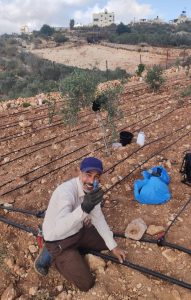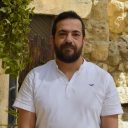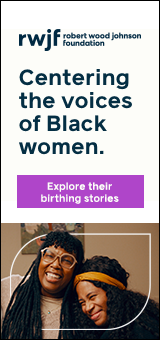Palestine was a hub for trade and culture for centuries, strategically located on the trade route between Asia and Africa. Fertile and resourceful, the region thrived while the Indigenous Palestinians controlled their land and a wealth of resources. Today, their reality stands in sharp contrast. An ongoing genocide and a blockade that has persisted for years control almost every aspect of the Palestinians’ lives.
Over the past three decades, Palestinians have received billions of dollars in international aid. This aid has led to significant changes in community behaviour. A pattern of community philanthropy has been replaced by top-down funded initiatives.
Such a change in the pattern of support and giving has led to Palestinians under-valuing their national resources. And if the community itself no longer feels in charge of its own direction, indeed the funders at the helm of this aid are also undervaluing of the community’s understanding of its needs and aspirations and imposing their own priorities.

The stormwater harvesting system and reservoir supported by Dalia’s Jerusalem Fund, Bayt Surik, Jerusalem.
Re-imagining philanthropy in time of crisis
Before I can reflect on re-imagining philanthropy nowadays, first, we must agree that we as Palestinians have the right to self-determination, and the right for a future built on addressing what really matters to the community, listening to its needs, and responding according to its priorities.

Ecological vegetables produced by the Bait Al-Maqdis Ecological Cooperative, supported by the Jerusalem Fund.
Al-‘Ouna, an Arabic term meaning giving or aid, has been a longstanding practice in Palestinian society. As a child visiting my grandfather in our hometown, Nuba, northwest of Hebron in the early 1990s, I recall my grandfather calling the family, ‘let’s go, they need our ‘Ouna,’ asking us to support another family with their grape harvest. Later that year, the same family returned the favour by helping my grandfather build his cattle barn. This is an example of the indigenous aid system which helped the community create a collective support network from within, and efficiently utilize and value the local resources.
Many Palestinians now seek to revive the values of Al-‘Ouna, mobilising local resources as a means of resilience after decades of donor dependency and a shift in culture under the neoliberal post-Oslo economy. Individualism has replaced collective aspirations for freedom and sovereignty. For Palestinians, the answer comes from within the community, which understands its needs and has the capacity to meet them utilizing local resources.
To #ShiftThePower in the Palestinian context, we need to address the struggle for basic rights and resources critical for survival. Many layers of power need to be shifted, for Palestinians to be able to pursue sustainable, durable, community-led development which leaves an impact on what matters to the community. This can be achieved through flexible partnership that is based on trust and accountability as two main pillars of cooperation. Trust in this context is a two-way relationship between the funders and organisations, where the funders believe in the organisations’ abilities and understanding of the community’s needs. In return, the organisation would trust the funder’s support and would value it as a resource, thus, creating voluntary accountability by the organisation in this frame of flexible partnership.
The Palestinian funding landscape saw a drastic shift after the outbreak of the war last year, resulting in an increase in humanitarian aid, re-allocation of developmental funds into humanitarian response, suspension of major international funding, and donors imposing further conditions on Palestinian organisations and initiatives, making the need for emancipation from conditional international funds more immense. On the other hand, new means of philanthropy emerged; individual local Palestinian and diaspora givers, international individual donors, and movements are channeling resources and efforts for the steadfastness of Palestinians. In 2023, a group of Jerusalemite activists and members of the community decided to respond to the community’s needs and established the Jerusalem Fund through the Dalia Association. The fund mobilized resources and supported the “Bait Al-Maqdis Ecological Cooperative” in Bayt Surik, Northwest Jerusalem, establishing a water reservoir, in which stormwater is harvested and stored during the winter season to meet the water needs of the dry summer season. The cooperative now provides ecological, seasonal, affordable vegetables to the village and the surrounding areas, and is employing tens of local workers, while the Jerusalem Fund continues to mobilize local resources to support more community-led initiatives in an area facing constant attempts of displacement by the occupation.
Such examples of community philanthropy and Al-‘Ouna during these dark times remind us of our ability as Palestinians to collectively utilize resources to support each other, rather than relying on international funds. I have personally witnessed community generosity, with donations pouring into the Gaza Fund established by the Dalia Association, primarily from individual donors in Palestine and the diaspora. This fund has met basic needs for many in Gaza and assisted Gazan workers expelled from the 1948 areas to the West Bank at the beginning of the war. This example of a shift in power demonstrates our ability to take matters into our own hands utilizing our resources and mobilising our community. Even if late, it’s still better than never.
Yazan Shrouf is a Palestinian writer and translator, born in Al-Yarmouk refugee camp in Syria and based in Ramallah. He works as the Communication and Fundraising Officer at Dalia Association.
This article was published as a part of a series of pieces exploring philanthropy’s response to catastrophe in Gaza. Read the series here.




Comments (0)